Babies are known to exhibit a variety of behaviors that can be both adorable and confusing to new parents. One such behavior is when a baby rubs their face on their caregiver’s body.
‘Why Does My Baby Rub Her Face on Me?’ While it may seem like a simple gesture, the reasons behind it can be complex and varied.
Understanding a baby’s behavior is key to deciphering the meaning behind this action. It could be a sign of tiredness or hunger, or it could be a way for the baby to self-soothe.
The rooting reflex, which is present in newborns, could also play a role in this behavior. Additionally, a baby’s development and motor skills could be a factor in why they rub their face on their caregiver.
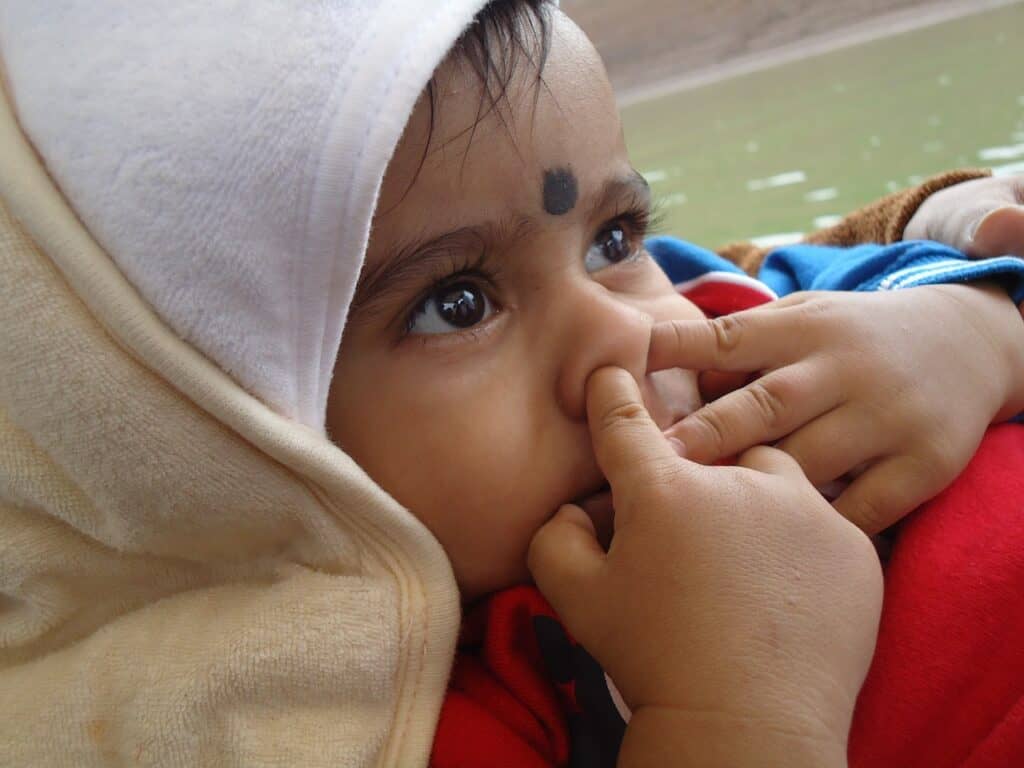
Key Takeaways
- Rubbing their face on their caregiver could be a sign of tiredness, hunger, or self-soothing.
- The rooting reflex and a baby’s development and motor skills could also play a role in this behavior.
- If the behavior is accompanied by other symptoms or concerns, it may be necessary to consult with a pediatrician.
1. Understanding Baby’s Behavior
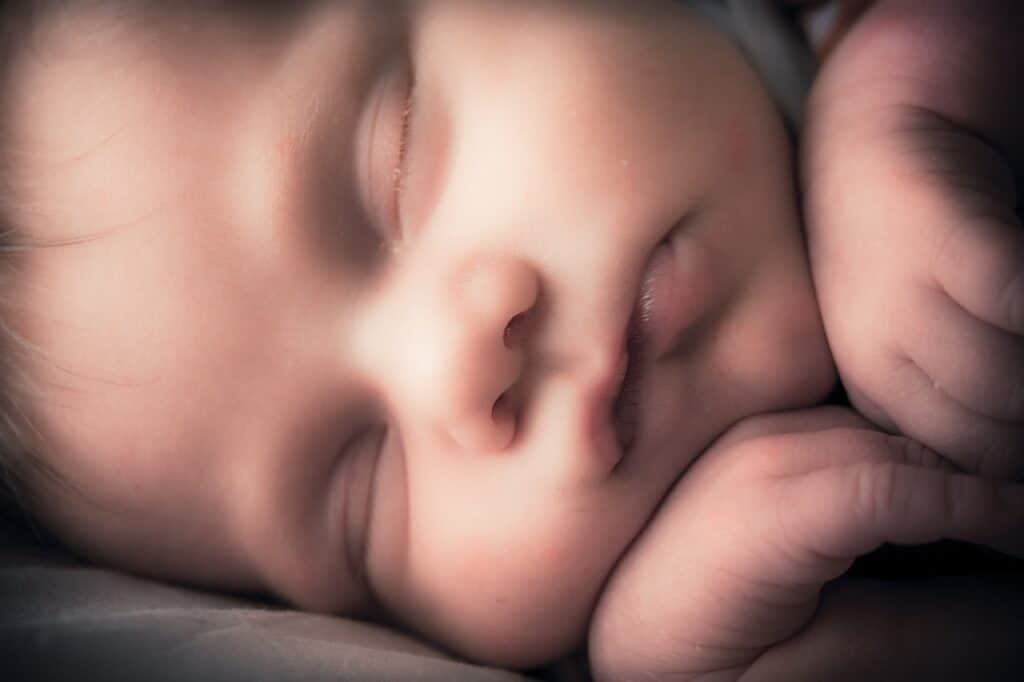
Babies are known to exhibit various behaviors, some of which may be confusing to parents. One such behavior is face rubbing, which is quite common among babies.
While it may seem alarming to parents, face rubbing is usually a normal behavior in babies.
Face rubbing is a sensory-seeking behavior that is common in babies. Babies have a heightened sense of touch, and rubbing their face against a parent or caregiver is a way of exploring their environment.
It is also a way for babies to soothe themselves when they are feeling overwhelmed or overstimulated.
Babies may also rub their face as a comfort mechanism. The sensation of rubbing their face against a soft surface, such as a parent’s chest or shoulder, can be calming and reassuring to a baby.
It is a way for them to feel safe and secure.
It is important to note that face rubbing is usually a normal behavior in babies and does not necessarily indicate any underlying medical condition. However, if the behavior is excessive or accompanied by other symptoms, such as redness or irritation, it may be worth consulting with a pediatrician to rule out any underlying issues.
In summary, face rubbing is a normal behavior in babies that serves as a sensory-seeking and soothing mechanism. While it may seem alarming to parents, it is usually nothing to worry about.
2. Signs of Tiredness in Babies
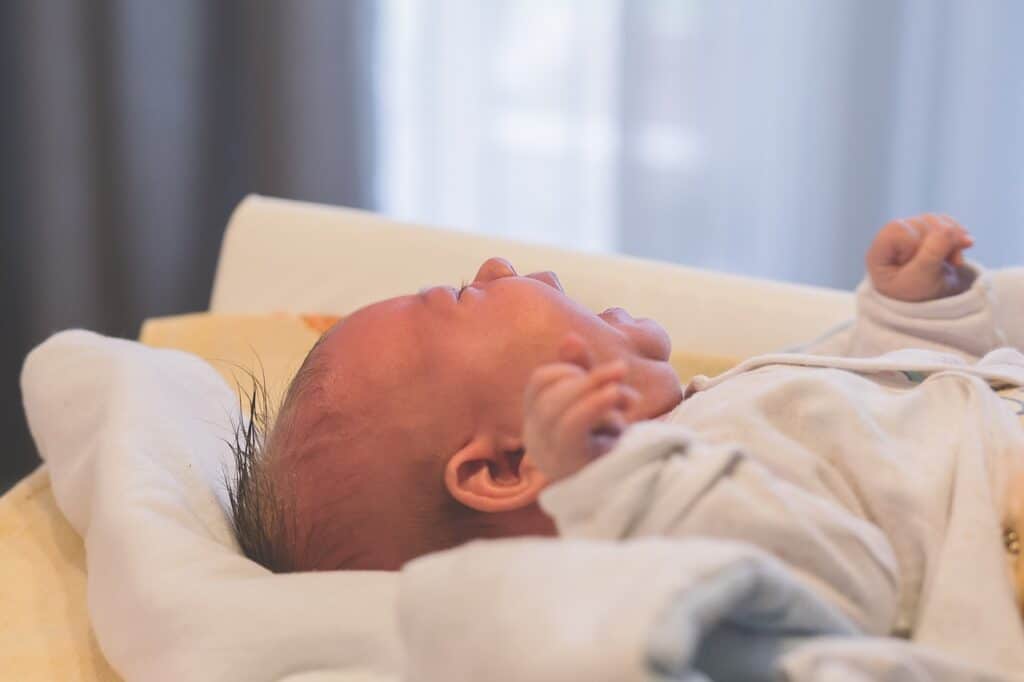
Babies have a limited capacity for staying awake and require a lot of sleep to support their growth and development. However, they cannot communicate their tiredness in the same way as adults.
As a result, parents must be aware of the signs of tiredness in their babies to ensure they get the rest they need.
One of the most common signs of tiredness in babies is yawning. Babies will often yawn repeatedly when they are tired, just like adults.
However, babies may also yawn when they are bored or overstimulated, so it’s important to look for other signs of tiredness as well.
Another sign of tiredness in babies is fussing. When babies are tired, they may become irritable and fussy.
They may cry more than usual or have difficulty settling down to sleep. This is a clear indication that they need to rest.
Rubbing their face is also a sign of tiredness in babies. When babies are tired, they may rub their eyes, nose, or face to try and soothe themselves.
This is a common behavior that many parents will notice when their baby is tired.
Finally, some babies may become less active when they are tired. They may move less, and their movements may become slower and less coordinated.
This is another clear sign that they need to rest.
In conclusion, parents should be aware of the signs of tiredness in their babies to ensure they get the sleep they need. Yawning, fussing, rubbing their face, and decreased activity are all indicators that a baby needs to rest.
By paying attention to these signs, parents can help their babies get the sleep they need to support their growth and development.
3. The Rooting Reflex
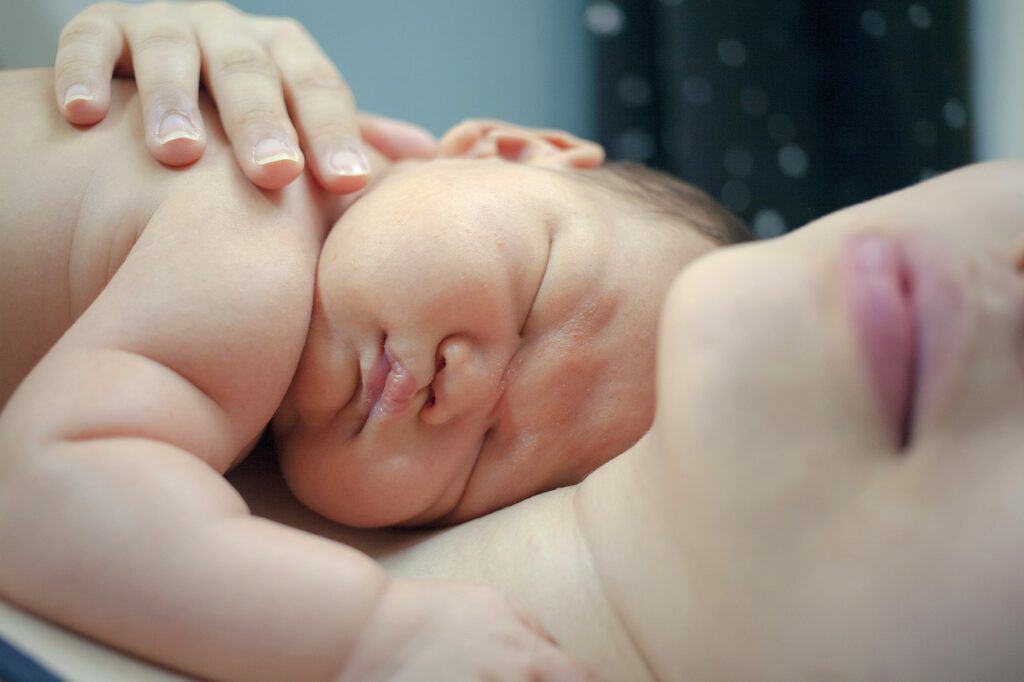
When babies are born, they have a natural instinct to turn their heads and open their mouths when something touches their cheek or mouth. This instinct is called the rooting reflex and is a survival mechanism that helps babies find their mother’s breast for feeding.
The rooting reflex is triggered by touch, and it is a way for babies to communicate their needs to their caregivers. When a baby rubs their face on their caregiver, it could be a sign that they are hungry and looking for food.
Additionally, the rooting reflex plays a role in mother recognition. Babies are born with the ability to recognize their mother’s scent and voice, and the rooting reflex helps them turn towards their mother for comfort and care.
It is important to note that the rooting reflex typically disappears around four months of age as babies develop more advanced motor skills and become more efficient at feeding. If a baby continues to exhibit the rooting reflex after four months, it is important to consult with a pediatrician to rule out any underlying medical issues.
In summary, the rooting reflex is a natural instinct that helps babies find their mother’s breast for feeding and plays a role in mother recognition. When a baby rubs their face on their caregiver, it could be a sign that they are hungry and looking for food.
4. Baby’s Development and Motor Skills
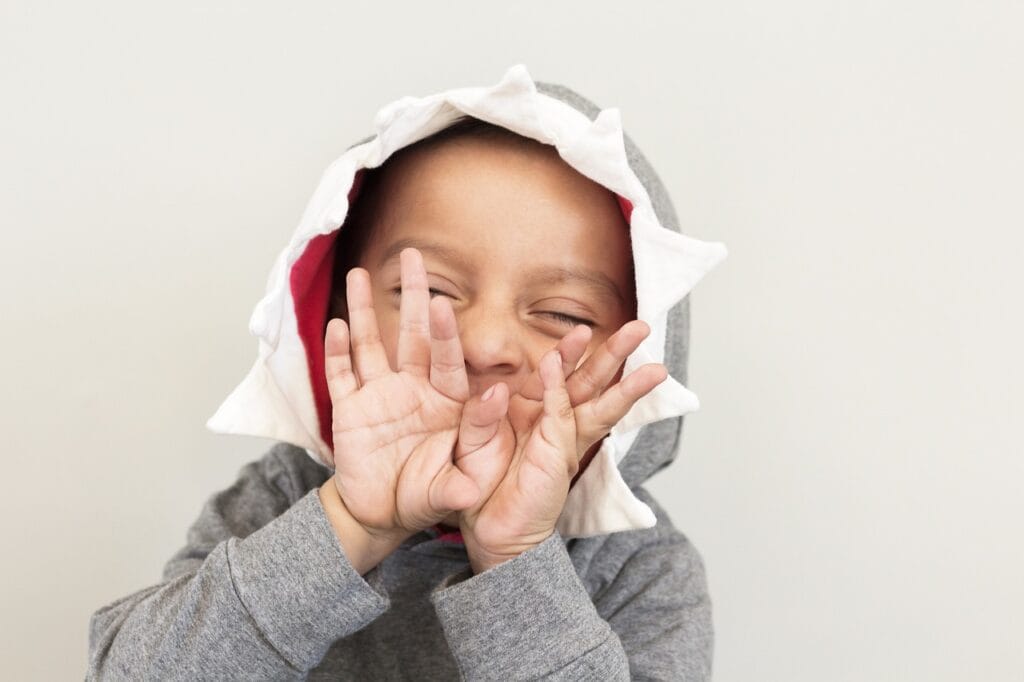
As babies grow and develop, they begin to explore their world in new ways. One way they do this is by using their motor skills to touch and feel everything around them.
This includes rubbing their face on people and objects.
Motor skills are the abilities that allow us to move and interact with our environment. Babies develop their motor skills gradually, starting with simple movements like grasping and reaching, and progressing to more complex movements like crawling and walking.
Coordination is another important aspect of motor development. It involves the ability to coordinate different parts of the body to perform a task.
For example, a baby needs to coordinate their arms and legs to crawl.
Rubbing their face on people and objects is a common behavior for babies. It may be a way for them to explore different textures and sensations, or it could be a way for them to self-soothe.
As babies develop their motor skills and coordination, they may also begin to rub their face on objects as a way to practice their movements.
Overall, rubbing their face on people and objects is a normal part of a baby’s development and motor skills. As they continue to grow and explore their world, they will continue to use their motor skills to interact with their environment in new and exciting ways.
5. Self-Soothing Techniques and Tools

Babies have a natural need to self-soothe, and there are several techniques and tools that parents can use to help their baby feel calm and comforted. Here are a few options to consider:
Pacifiers
Pacifiers can be a useful tool for self-soothing. Babies have a natural urge to suck, and a pacifier can help satisfy that need. However, it’s important to use pacifiers safely and appropriately.
Parents should choose a pacifier that is the right size for their baby and avoid using them too often or for too long.
Toys
Soft, comforting toys can also help babies self-soothe. A favorite stuffed animal or blanket can provide a sense of security and comfort.
However, it’s important to choose toys that are safe for babies and avoid anything with small parts or loose strings that could pose a choking hazard.
Swaddling
Swaddling can help babies feel secure and calm by mimicking the feeling of being in the womb. It involves wrapping a baby snugly in a blanket, with their arms and legs tucked in.
However, it’s important to swaddle safely and avoid wrapping the baby too tightly or covering their face.
Overall, there are several techniques and tools that parents can use to help their baby self-soothe. It’s important to choose options that are safe and appropriate for the baby’s age and development.
6. Feeding and Hunger Cues
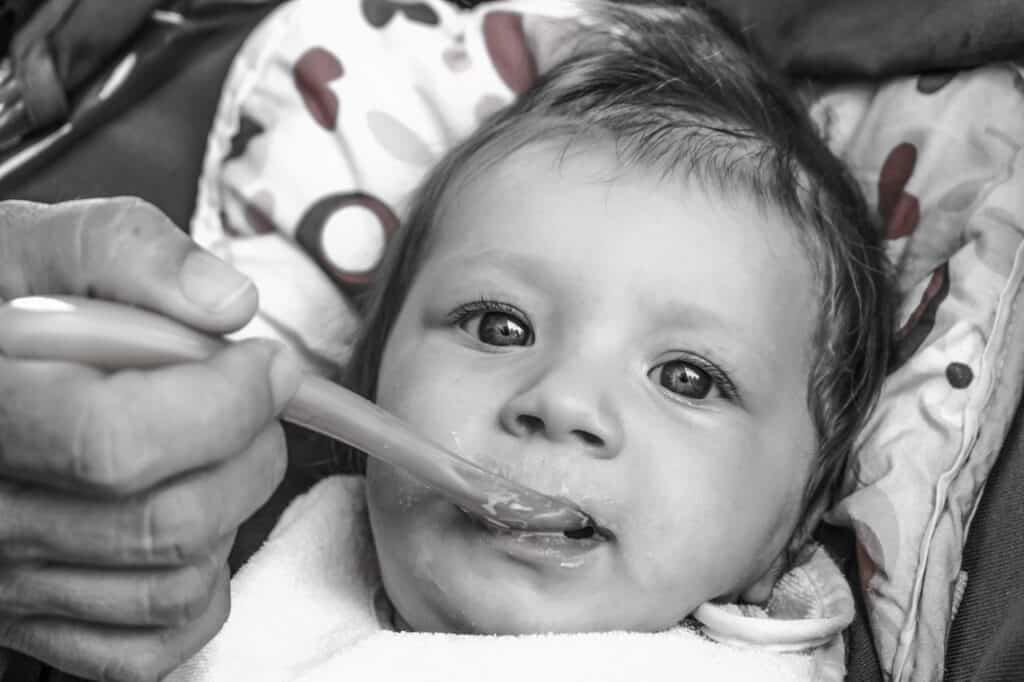
Babies have various ways of communicating their needs, and one of the most common ways is through body language. Rubbing the face on someone or something is a common hunger cue in infants.
This behavior is often seen in breastfed babies, but it can also happen in bottle-fed infants.
When a baby rubs their face on someone, it is usually a sign that they are hungry and looking for food. This behavior can also be accompanied by rooting, which is when a baby turns their head and opens their mouth in search of the breast or bottle.
Breastfed babies may rub their faces on their mother’s chest or arm as a way of indicating that they are ready to nurse. Bottle-fed babies may rub their faces on the bottle or on the person feeding them.
In both cases, it is important to recognize this behavior as a hunger cue and respond accordingly.
It is also important to note that not all hunger cues are the same. Some babies may become fussy or cry when they are hungry, while others may be more subtle in their communication.
Learning to recognize your baby’s hunger cues can help you respond to their needs more effectively.
In addition to hunger cues, it is also important to pay attention to other feeding cues such as burping. Burping helps to release any air that may have been swallowed during feeding and can prevent discomfort and fussiness.
It is recommended to burp a baby after every feeding, even if they do not show any signs of discomfort.
Overall, recognizing and responding to your baby’s feeding and hunger cues can help to establish a healthy feeding routine and promote bonding between parent and child.
7. Health Concerns and When to See a Pediatrician
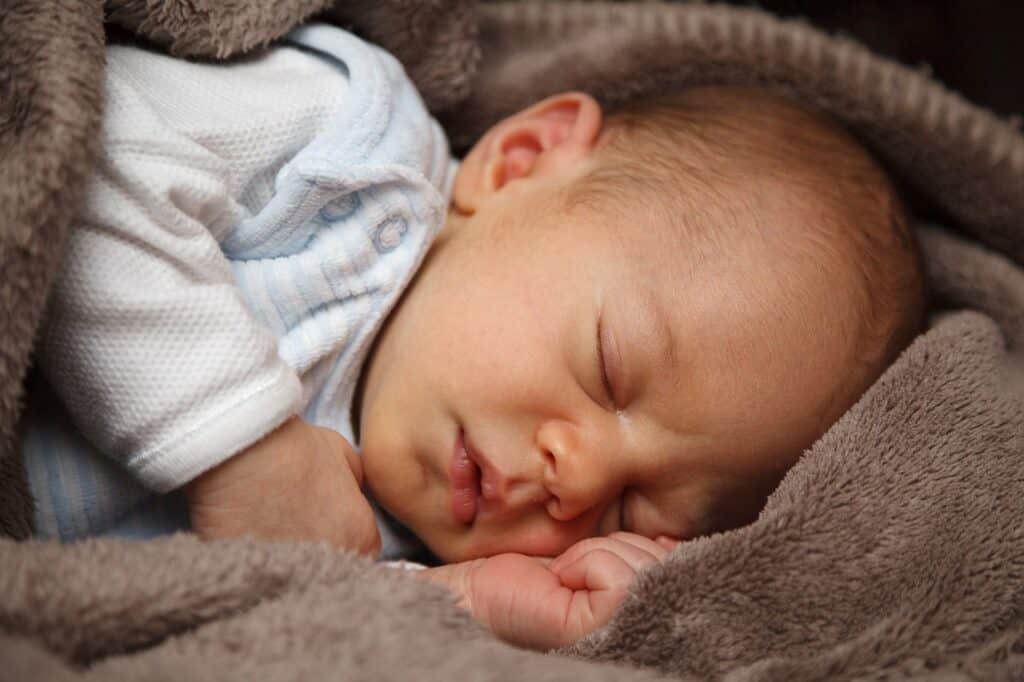
While rubbing the face on someone or something is a common behavior in babies, it can also be a sign of an underlying health issue. Here are some health concerns to keep in mind when your baby rubs their face on you:
Discomfort
Babies may rub their faces on their caregivers if they are feeling uncomfortable or in pain. This can be due to teething, an itchy rash, or a dirty diaper.
It’s important to check for any obvious signs of discomfort and address them accordingly.
Ear Infection
Ear infections are common in babies and can cause discomfort and pain. If your baby is rubbing their ear or face frequently, it may be a sign of an ear infection.
Other symptoms may include fever, trouble sleeping, and fussiness. It’s important to see a pediatrician if you suspect your baby has an ear infection.
Atopic Eczema
Atopic eczema is a common skin condition in babies and can cause itchy, red, and inflamed skin. If your baby is rubbing their face frequently and has a rash or dry skin, it may be a sign of atopic eczema.
Treatment may include moisturizing creams, topical steroids, and avoiding triggers.
Thrush
Thrush is a yeast infection that can occur in the mouth or on the skin of babies. It can cause white patches on the tongue, cheeks, and gums, as well as itching and discomfort.
If your baby is rubbing their face and has white patches in their mouth, it may be a sign of thrush. Treatment may include antifungal medication and good hygiene practices.
If you notice any of these symptoms or are concerned about your baby’s behavior, it’s important to see a pediatrician. They can help diagnose and treat any underlying health issues and provide guidance on how to care for your baby.
8. External Factors and How to Manage Them
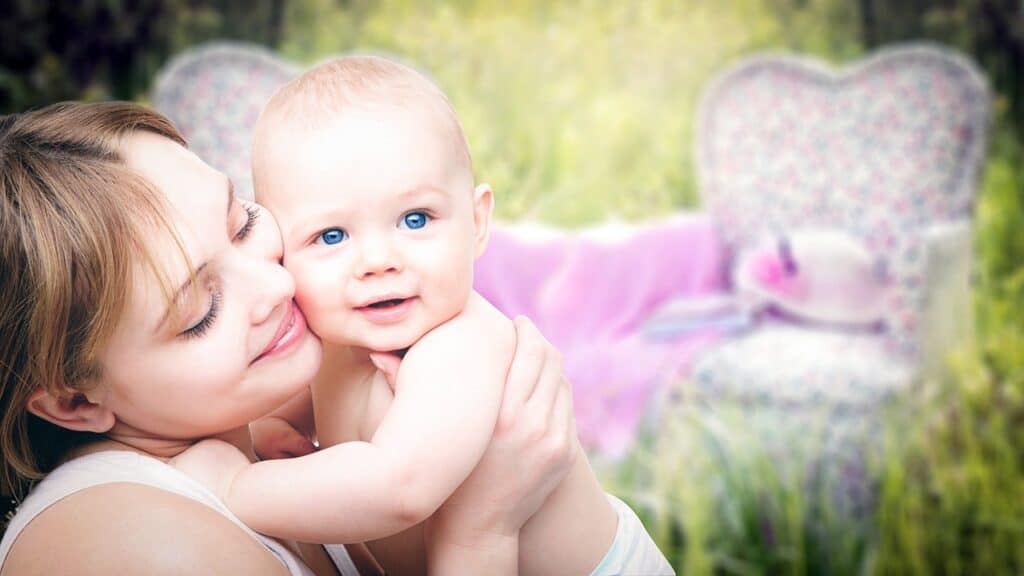
There are several external factors that can cause a baby to rub their face on their parent’s body. These factors can range from environmental irritants to emotional distress.
Here are some of the most common external factors and how to manage them.
Irritants
Irritants such as pollen, dust, and pet dander can cause a baby’s nose to itch and make them rub their face on their parent’s body. To manage this, parents should try to keep their homes as clean as possible and use an air purifier to reduce the amount of irritants in the air.
Skin Irritation
Babies with dry or itchy skin may also rub their face on their parent’s body for relief. Parents can use a gentle cream or lotion to moisturize their baby’s skin and reduce the itching.
Detergent
Sometimes detergents used to wash clothes or bedding can cause skin irritation and make a baby rub their face on their parent’s body. Parents should switch to a hypoallergenic detergent to reduce the risk of skin irritation.
Smell
Babies are very sensitive to smells, and certain scents can cause them to rub their face on their parent’s body. Parents should avoid wearing strong perfumes or using scented lotions or creams when holding their baby.
Crying
When a baby cries, their face can become irritated, and they may rub it on their parent’s body for comfort. Parents should try to soothe their baby and reduce the amount of crying to prevent skin irritation.
Hiccups
Hiccups can be uncomfortable for babies, and they may rub their face on their parent’s body to try and alleviate the discomfort. Parents can try to soothe their baby by gently patting their back or giving them a pacifier.
Overall, there are several external factors that can cause a baby to rub their face on their parent’s body. By identifying and managing these factors, parents can help their baby feel more comfortable and reduce the amount of rubbing.
9. Frequently Asked Questions
Why do babies rub their nose on your chest?
Babies may rub their nose on your chest as a way to self-soothe or feel comforted. This behavior is often seen in newborns and infants who are looking for a familiar scent or warmth.
Why do babies rub their face with hands while sleeping?
Babies may rub their face with their hands while sleeping as a way to self-soothe or alleviate discomfort. This behavior is often seen in babies who are teething or experiencing nasal congestion.
What does it mean when my baby rubs his face on me?
When a baby rubs their face on you, it may be a sign of affection or a way to seek comfort. Babies may also rub their face on you as a way to explore their surroundings and learn about different textures.
Why does my baby rub his head from side to side?
Babies may rub their head from side to side as a way to self-soothe or alleviate discomfort. This behavior is often seen in babies who are tired, overstimulated, or experiencing ear pain.
How do babies show affection?
Babies show affection in a variety of ways, including smiling, cooing, reaching for you, and snuggling. They may also express affection through physical touch, such as hugging or rubbing their face on you.
Why do babies rub their face on me while teething?
Babies may rub their face on you while teething as a way to alleviate discomfort or pain. Teething can cause gum soreness and irritation, and rubbing their face on a soft surface can provide temporary relief.

Iesha is a loving mother of 2 beautiful children. She’s an active parent who enjoys indoor and outdoor adventures with her family. Her mission is to share practical and realistic parenting advice to help the parenting community becoming stronger.
